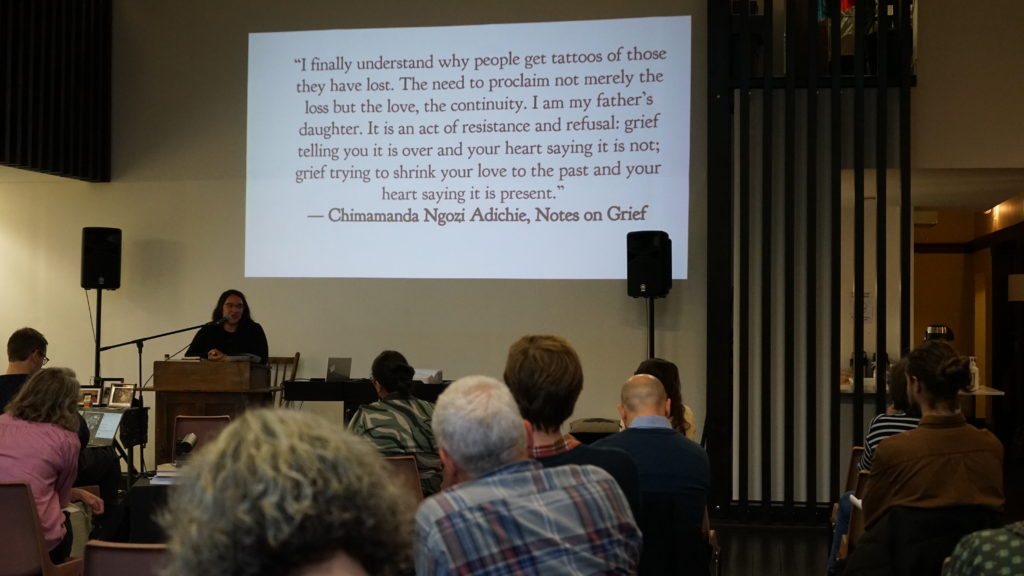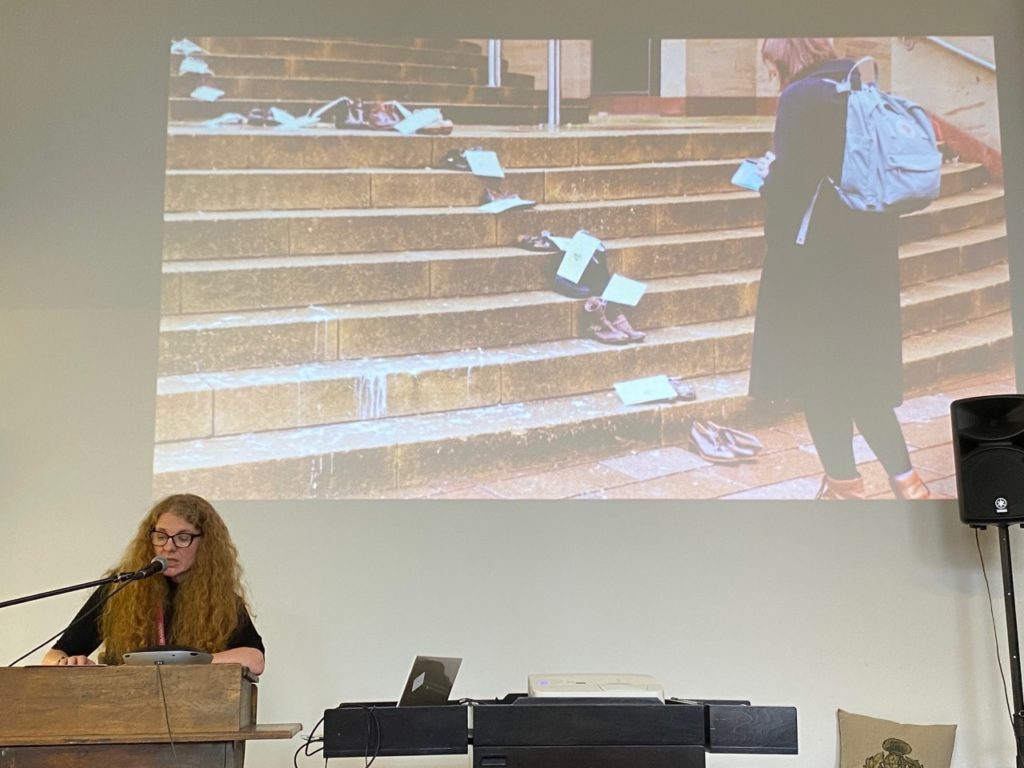
The DeathWrites Network, funded by the Royal Society of Edinburgh (RSE) and University of Glasgow Arts Lab, held its 2nd Symposium on 6th October, 2022. During the hybrid event at the historic Glasgow Women’s Library, we heard keynotes from the Scottish poet, playwright, and performer Hannah Lavery and from the Open Museum curator, Elaine Addington. Our Network of 30 talented Scotland-based writers, all writing about aspects of dying, death and grief were also given time in the day to discuss their individual projects with each other. In our commitment to work collectively on this topic we are in discussion about an anthology as well as a podcast series, so watch this space!
As part of an RSE grant called COVID as Catalyst for Writing and Discussing Death, Dying and Grief through Objects, Diaries and Collective Archives, Drs Naomi Richards, Elizabeth Reeder and Amy Shea are supporting 30 Scotland-based writers from across disciplines and genres to write and publish powerful, accessible work with the aim to broaden and diversify understandings and conversations about dying, death and grief. The Network runs from January 2022 – March 2024.
In this 2nd Expanding the Field Symposium, Hannah Lavery gave an astute and stirring keynote about the process of writing about the death of her father and her grief and performed poetry from, among other works, her collection Finding Sea Glass: Poems from The Drift. She also showed an excerpt of the film Thirteen Fragments, a collaboration between herself, choreographer Nat McCleary, composer Beldina Odenyo and filmmaker Beth Chalmers exploring the impact of the Covid pandemic on women specifically and the themes of injustice, race, isolation, and renewal.

Museum curator Elaine Addington discussed Glasgow Open Museum’s initiative to collect Covid exhibits that in some form represent people’s everyday experiences of the pandemic, including their fears of contamination and the threat of premature death. The same initiative to collect Covid exhibits is being undertaken by the National Museum of Scotland. Elaine also discussed other initiatives she has been involved in which publicly represent and raise awareness of inequalities and invisibility of certain kinds of dying and deaths, such as placing old pairs of shoes in different formations on the streets of Glasgow to represent the 47 individuals who died in the city in 2017 while experiencing homelessness.

Next steps for the Network are to run two events before Christmas for all our writers to present on their individual projects, and to organise public talks by high profile published authors who have written on dying, death and grief and who have a novel perspective to share. Our Network members have such important stories to tell, we hope that eventually they will follow on the same path to getting their work into the public domain and will be able to bring their unique voice to bear on the public conversation.


This all looks very interesting. How are older people (over 65) who write and who are closer to end of life experience themselves being included in this project? What is the lived experience of ageing past the three score years and ten representation in this group? Does this project link in any way to the work of Luminate? I realise its about the writing but this background would help me contextualise what the project is aiming to do.